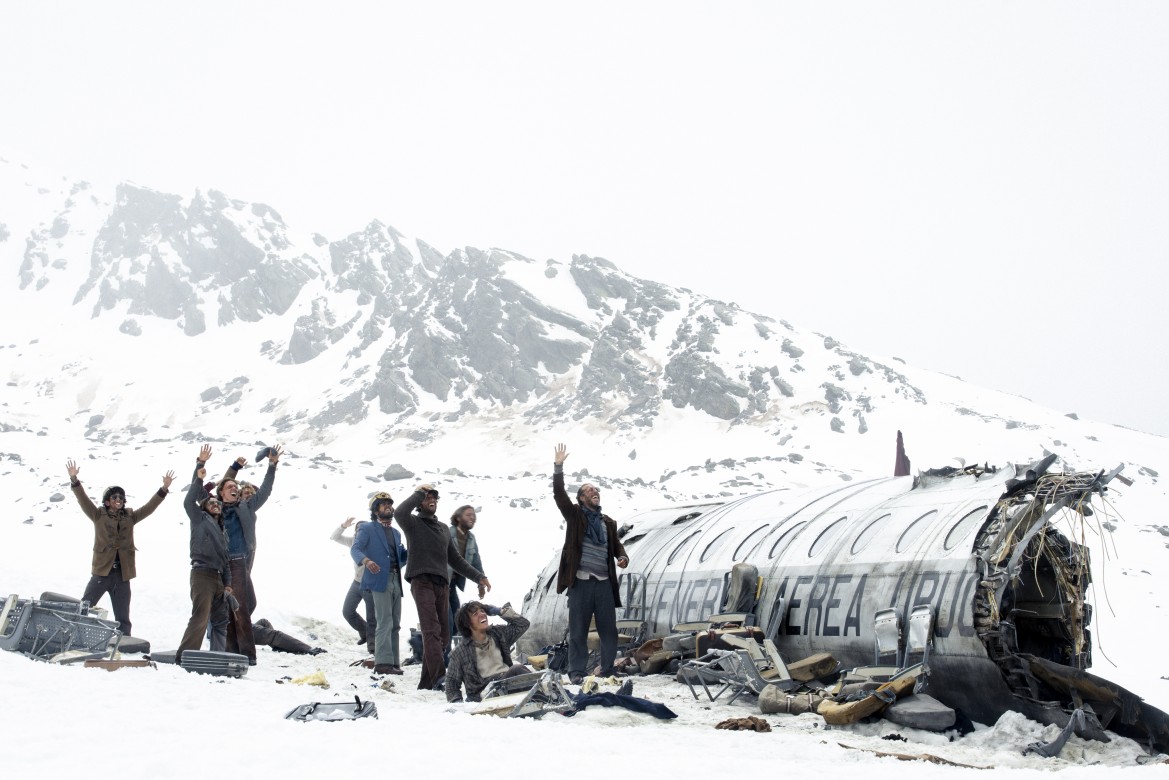"I'm interested in survival on a more emotional level"
An Interview with J.A. Bayona
22 Jan 2024
Reading 4 min.
'Society of the Snow', one of the biggest cinematic events of the year, is now available on Netflix. To celebrate the fact that we can enjoy it both on the big screen and at home, we bring you Javi Parra's interview with J.A. Bayona for the Festival daily.
The Catalan director arrives in Sitges to receive the Time Machine Award and to present 'Society of the Snow', his ambitious new production, selected by Spain as a candidate for the Academy Awards.
Juan Antonio Bayona (Barcelona, 1975), burst onto the horror scene with 'The Orphanage' in 2007, a huge sensation at the time. Before that, he had built a career for himself in the world of music videos, being the head director for groups including OBK and Camela. Then came worldwide achievements including 'The Impossible', 'A Monster Calls' and 'Jurassic World: Fallen Kingdom'. For the small screen, he has worked as a director on 'Penny Dreadful' and 'The Lord of the Rings: The Rings of Power'.
How does it feel to be awarded the Time Machine in Sitges?
It's strange because I consider this festival to be very special. For me, the line between stage and audience is very blurred. I started coming as a viewer, like many other directors who still come, and then I began making films. In the end, it's a festival where you feel like you're at home. And to be honored at home is very exciting.
What would you say to the Bayona from back when he first started coming to the Festival?
I would be talking to the Bayona from '92, the one who came to see 'Army of Darkness', thirty-one years ago now. And now, look: I even have a very good relationship with Sam Raimi, we get along pretty well. It's been a very incredible journey in that sense. I think I would tell him to keep doing things the way he's doing them.
Where did the idea come from to take on a project like 'Society of the Snow'?
Well, it actually comes as somewhat of a rebound. I bought Pablo Vierci's book when I was researching for 'The Impossible', and it was there when I discovered a story that, although it already helped me a lot in terms of documentation for that film, explains perfectly well what can happen in the mind of a person in a situation of extreme survival. But at the same time it left me so shocked and gripped by the story that we thought it should be brought to the screen. So we bought the rights to 'Society of the Snow' after we finished shooting 'The Impossible'. It's been a journey of more than ten years.
What is the difference between 'Society of the Snow' and the previous version of the same story that was released in the 1990s?
When I read Vierci's book I realized that this story is much bigger than I thought, on a much more introspective level. 'Alive!', Pier Paul Read's book, was written just a year after the tragedy, when the boys were still in their early twenties. This one was written almost forty years later, and its reflections are very different, they're more interior and profound, both on a psychological, spiritual and human level. Viewers who come looking for an adventure and action movie aren't only going to find that, but will see something totally different from the previous approach.
Does 'Society of the Snow' owe anything to disaster movies?
I've never really been a big fan of disaster movies, given that I've always been interested in survival on a more emotional level. That genre ends up giving you all the packaging, the anecdote for the story elements to become huge. What's always interested me is the intimacy, and this is the field where 'Society of the Snow' plays, halfway between intimacy and epic.
Speaking of epic... What as more epic: relocating to Uruguay to shoot 'Society of the Snow' or traveling to New Zealand to make 'The Lord of the Rings: The Rings of Power'?
I'm presenting a film in Sitges that I'm very proud of, and all the films I've made before are what have finally brought me this far. Each project has its own characteristics and particularities. Actually, getting into Tolkien's universe and building a series from scratch (with casting, even building sets from scratch) is like starting a new movie. The epic nature can also be considered on a production level, since in the case of 'The Lord of the Rings: The Rings of Power', you work with the best teams in the world and within a production framework that is very different from what we have in Spain, and you end up applying that to the way you work.
Who are your benchmarks in the fantastic genre, and have they changed over time?
They are always changing, just like the genre. I do have some benchmarks that have always been there, like Sam Raimi, who for me has always been present. Or Spielberg and a bunch of others that you always keep track of. As an ultimate benchmark, I wouldn't know what to say. I don't know if I would classify it as fantastic, but I really like the work of Bennett Miller, the director of 'Foxcatcher' and 'Truman Capote'. He masters atmospheres in a way that's very similar to how it's done in fantastic films, and I'm interested in how he handles the ordinary in a way that's almost fantastic
Previous content
Sitges Consolidates its Presence at Ventana SurNext content
It's Bloody Green... and Certified!